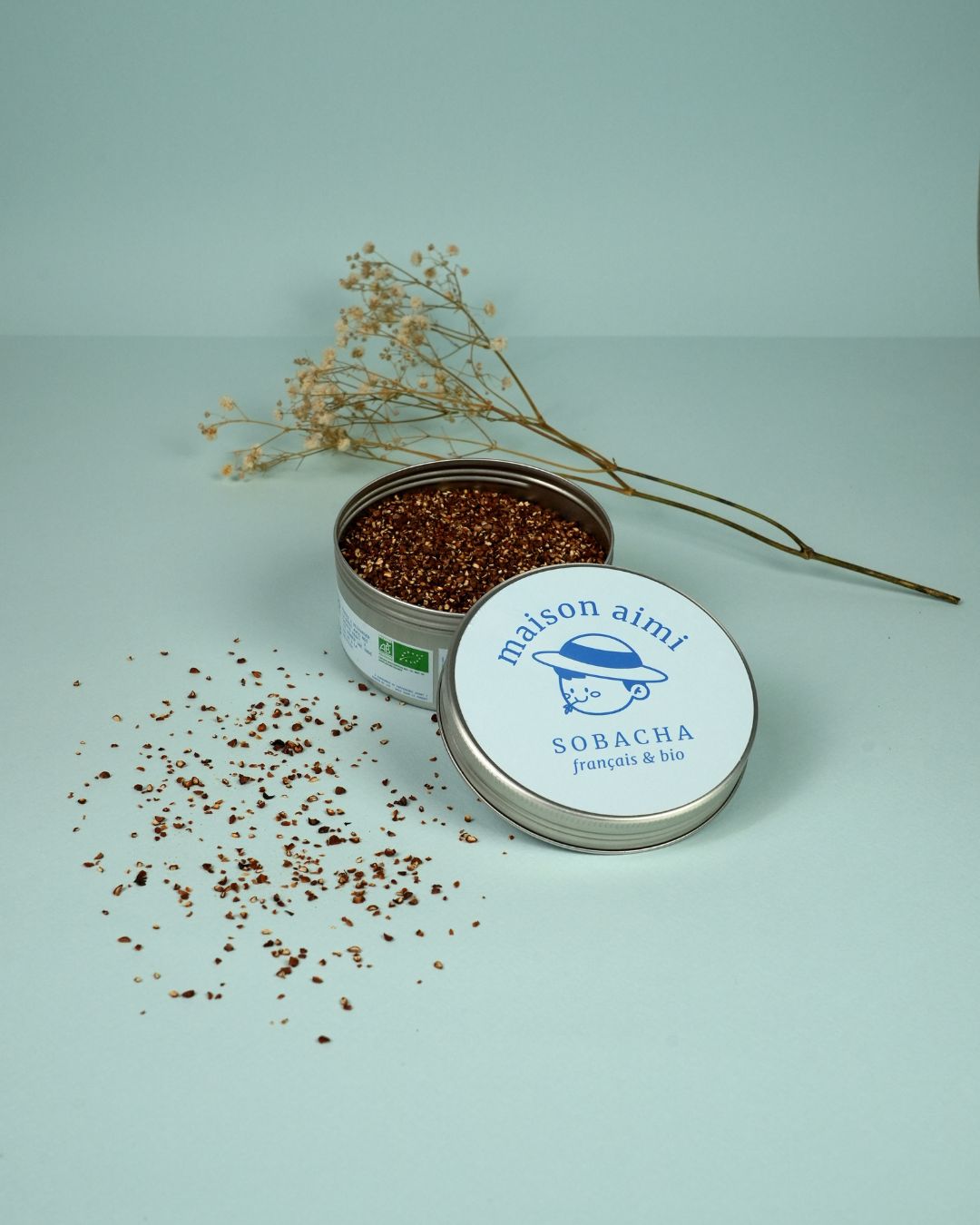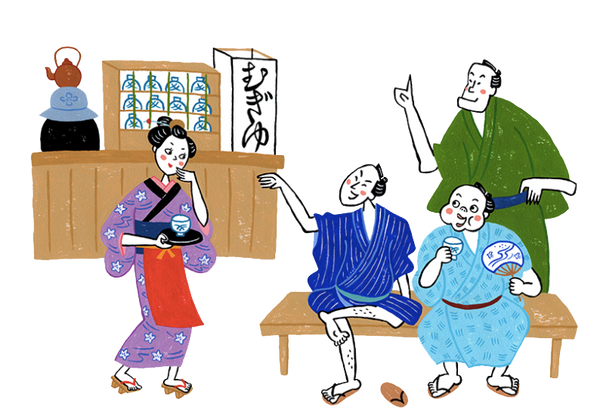Mugicha or the Japanese well-being drink
What is mugicha, this well-being drink from Japan?
Mugicha or the ultimate Japanese wellness drink literally means barley tea, even though it is not tea in the strict sense.
Mugicha is a drink made from roasted barley that the Japanese drink cold or hot depending on the seasons and their mood.
This drink is an integral part of East Asian culture. The Japanese have been enjoying it for over 500 years, well before green tea !
It is the roasted barley seeds that are used in infusion. The Koreans call it "boricha" and the Chinese "dàmàichá". It is also called "Barley Tea", "Barley" meaning "barley" in English, a trendy way of saying barley tea in Asia.
Mugicha is a kid-friendly drink, they can drink it, and the elderly too, since it does not contain caffeine (or theine) .
It is so popular, healthy and easy to drink that the Japanese and Koreans consider it as a substitute for water in both summer and winter. The Japanese drink it a lot in the summer in a fresh version because, very thirst-quenching, it helps to cope with the summer heat.
Mugicha , a pleasant drink, an ally of well-being
Japanese and Koreans really like this drink. They like its taste, which is similar to that of roasted hazelnuts or maple syrup, but also its detox effect and its health aspect .
In fact, this low-calorie drink is rich in antioxidants, B vitamins and minerals (notably iron, zinc and potassium).
It also contains GABA, an anti-anxiety molecule that calms moods and anxieties. Mugicha therefore has benefits on anxiety, stress and also on sleep.
It would also help digestion, fight bad cholesterol and improve blood circulation.
This drink has so many virtues that it has entered the beauty and health routine of the Japanese and Koreans .
The origins of mugicha in Japan
Barley is one of the oldest cultivated cereals in the world. This cereal finds its cradle in Mesopotamia, more precisely between Iraq and Iran today. Man has cultivated it for 10,000 years. At first, he used it mainly to make cakes and porridge.
China introduced barley to the Land of the Rising Sun about 1,800 years ago. The Japanese began cultivating this cereal even before wheat.
Barley, harvested and then roasted and brewed in order to be drunk as tea, is a custom that dates back to the Heian period (794-1185). The custom of drinking mugicha is older than that of drinking green tea. Originally, it was nobles and military commanders who began drinking it hot.
It was in the late Edo period (1603-1868) that the Japanese began to market barley tea as a beverage for urban dwellers. Barley tea shops in city centers such as Ueno, Asakusa, and Ryogoku in Tokyo began to appear. Lanterns bearing the words "Mugiyu" lined the streets from evening to midnight, providing a place for ordinary people to relax.
At that time, the Japanese still had the habit of drinking hot mugicha, moreover in the term "Mugiyu" we find "mugi" which means "barley" and "yu" which means "hot water".
Mugicha, a reflection of Japanese society
Since then, different generations of Japanese have passed on this custom, which has settled into homes . Over the past 50 years, society has evolved rapidly and led to new consumption habits. It is now very popular in Japan to drink cold mugicha, especially in the summer when it is hot and humid, where it is essential to stay hydrated.
The 2020 pandemic also brought its share of new consumer habits and changed awareness. The importance of spending time with loved ones and the impact on the environment were brought back to the forefront.
As a result, more and more Japanese are ditching the plastic bottles of ready-made mugicha. They are replacing them with takeaway flasks and bottles that they fill with a pitcher of homemade mugicha.
Moments spent with family also encourage the consumption of mugicha, whether in the cold or hot version.
Mugicha, which is meant to be fresh and thirst-quenching in summer, is drunk hot and comforting in winter.
But in reality, there are no rules, and that is also the spirit of Maison Aimi!



